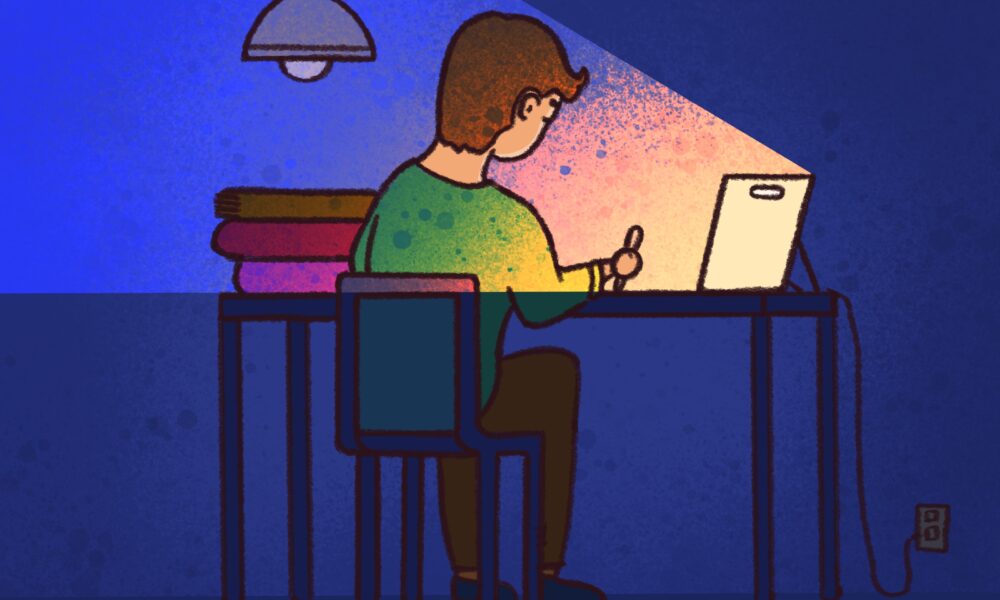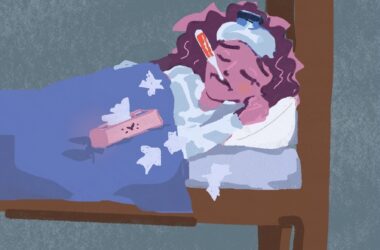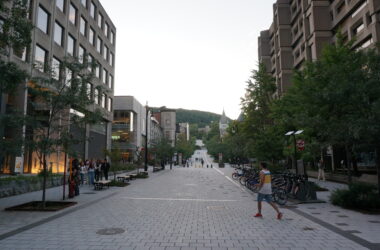Dear Ainsley,
I am back at school, mid-January, and here I find myself in the bleak midwinter. I feel more and more sluggish and unmotivated as the days grow shorter. With the sun setting before 5 p.m. and school routines returning, many McGill students, including myself, are experiencing depressive moods, and I am worried things will only get worse. My guess is most of us are affected by seasonal affective disorder. How do I combat these winter blues and regain motivation?
Sincerely,
Managing Seasonal Affective Disorder (MSAD)
Dear MSAD,
From what I understand, the seasonal affective disorder (SAD) you, and the students around you, may be experiencing is a form of depression triggered by a lack of sunlight during the fall and winter months. Symptoms of SAD can include changes in mood, disruptions in sleep, alterations in appetite, and a loss of interest in activities that once brought you joy.
However, I want you to know that these symptoms are not just a result of the gloomy weather, but rather the interruption of your body’s internal clock—also known as the circadian rhythm. The circadian rhythm is regulated by the hypothalamus, a part of the brain stimulated by sunlight. When the daylight hours are limited during the fall and winter, the hypothalamus no longer receives enough stimulation. This leads to an imbalance in your body’s production of certain hormones such as melatonin, which can make you sleepy and lethargic, and serotonin, which regulates mood, leading to feelings of depression and low energy levels.
Nevertheless, there’s hope. There are ways to combat SAD. So, if you are feeling the effects of the winter blues, listen closely. Here’s how to get through Montreal’s dismal winter.
Light therapy
You will want to practice light therapy, which can be as easy as spending more time in the sun or beside a sunlamp. Try going outside as much as possible to take advantage of the natural sunlight. Around noon, when the sun is brightest, bundle up in your warmest winter coat, hat, and scarf, and stroll around the block or to a nearby park to soak up the sun. When you’re indoors, keep your blinds open to let in as much natural light as possible. Using a sunlamp on darker days, when sunlight is scarce, is a great way to combat SAD. Whether it stems from a lamp or natural sunshine, the light will help balance your melatonin and serotonin levels, elevating your mood and combating the winter blues.
Exercise
Exercise is beneficial for anyone who suffers from depression, as it releases endorphins—hormones that reduce pain and increase feelings of well-being. Exercise also increases your metabolism, which helps improve your energy levels. Low-impact aerobic activities, such as walking or dancing, are exercises well suited to treating seasonal affective disorder. Try gentle stretching, yoga, swimming (the McGill pool is free to students, so no need to spend money!), or running. The McGill recreation centre offers a wide variety of group fitness classes and access to the gym for a relatively low price to help you maintain regular physical activity. So grab a friend, book a class, and get moving!
Get enough Vitamin D
Vitamin D is known as the “sunshine vitamin” because our body produces it when our skin is exposed to UV light, and it is crucial to maintaining overall well-being and happiness. Incorporating vitamin D-rich foods into your diet may also help combat seasonal affective disorder. These foods include salmon, turkey, eggs, mushrooms, leafy greens, walnuts, oatmeal, bananas, and berries. Try to incorporate a few new recipes into your toolkit that promote bringing the sunshine back to your palate.
Spend time with friends and family
Although one of the symptoms of seasonal affective disorder is social withdrawal, it’s important to avoid isolating yourself and maintain a healthy level of social interaction outside of classes. This can help lift your mood and keep the depressive thoughts at bay. So, take part in activities like sledding, dinner parties, and winter walks that get you out of your comfort zone and allow you to spend more time with your loved ones.









